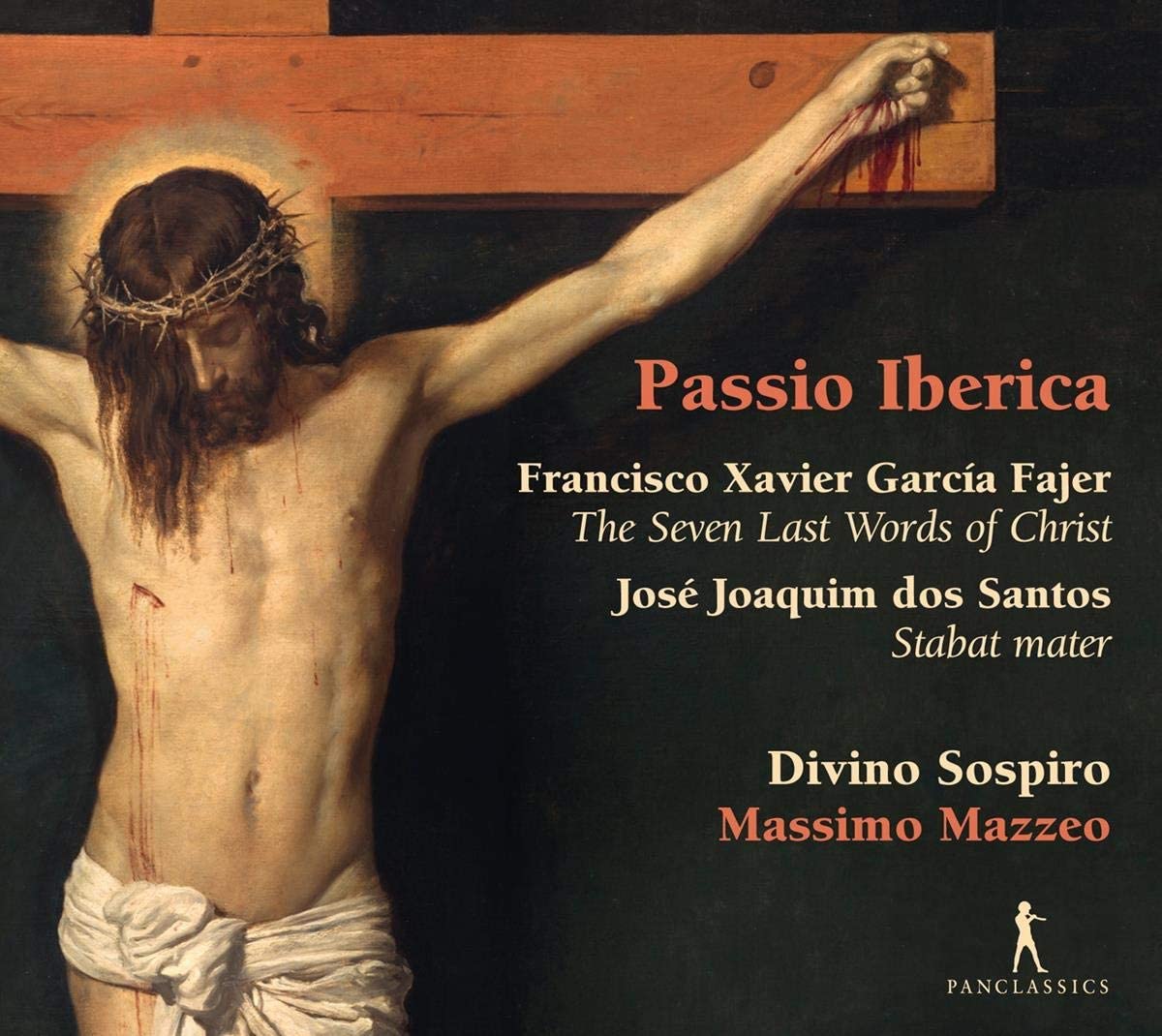García Fajer: The Seven Last Words of Christ; dos Santos: Stabat mater
Divino Sospiro, Massimo Mazzeo
65:21
Pan Classics PC 10401
This revelatory CD presents music for Holy Week by two largely unknown 18th-century Iberian composers, Francisco Javier García Fajer and José Joaquim dos Santos. García Fajer’s setting of a Castilian text contemplating the seven last words of Christ on the cross, was written in the wake of and under the influence Haydn’s famous setting of the Seven Last Words of 1792, commissioned by the Brotherhood of Nuestra Señora de la Cueva of Cadiz. García Fajer writes for two soprano voices with strings, and the seven sections all running to just about three minutes each are wonderfully evocative and melodic. He trained in Italy, at the prestigious Conservatorio della Pietà dei Turchini, before embarking on a career which saw him compose operas and oratorios and enjoy considerable success. For the last four decades of his life, he returned to Saragossa Cathedral, where he devoted himself exclusively to composing sacred music. While much of the music in his Siete Palabras is recognisably in the classical Viennese tradition, some of the more contemplative sections are distinctively Iberian and very atmospheric. The Stabat Mater by the Portuguese composer José Joaquim dos Santos for two sopranos, bass and strings of 1792 is also heavily Iberian in style, although it also owes a considerable debt to earlier settings such as that by Pergolesi. Dos Santos never studied in Italy but had close contacts with many musicians who had and was clearly well versed in the Italian idiom. The singing by Bárbara Barradas, Lucia Napoli and André Baleiro and the playing by Divino Sospiro of this unusual and distinctive music is of a high quality, and the recording both gives a context to Haydn’s unusual instrumental Seven Last Words as well as filling in an Iberian dimension to sacred music at the end of the 18th century.
D. James Ross
